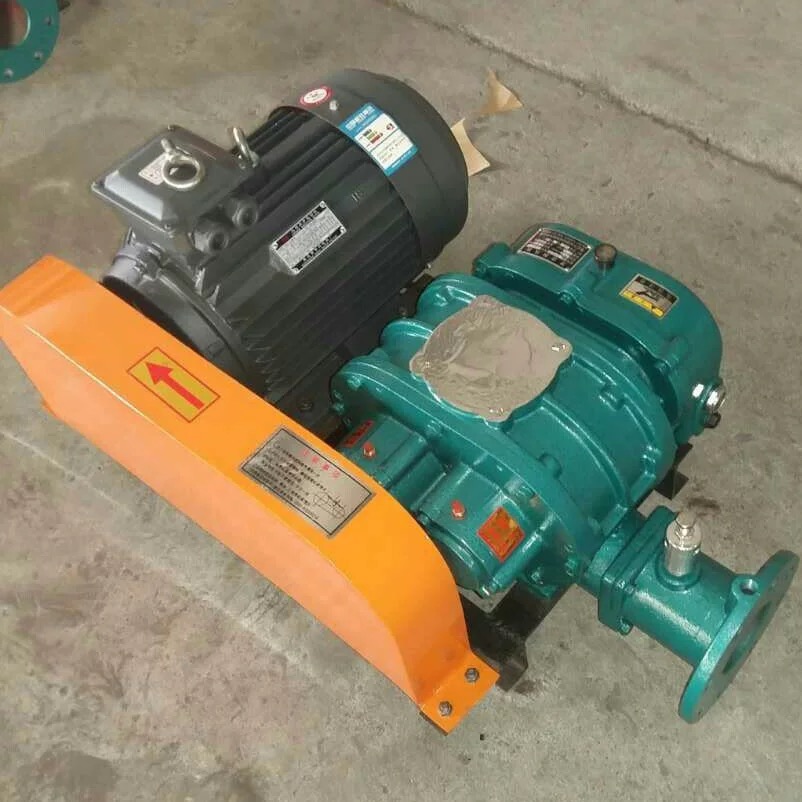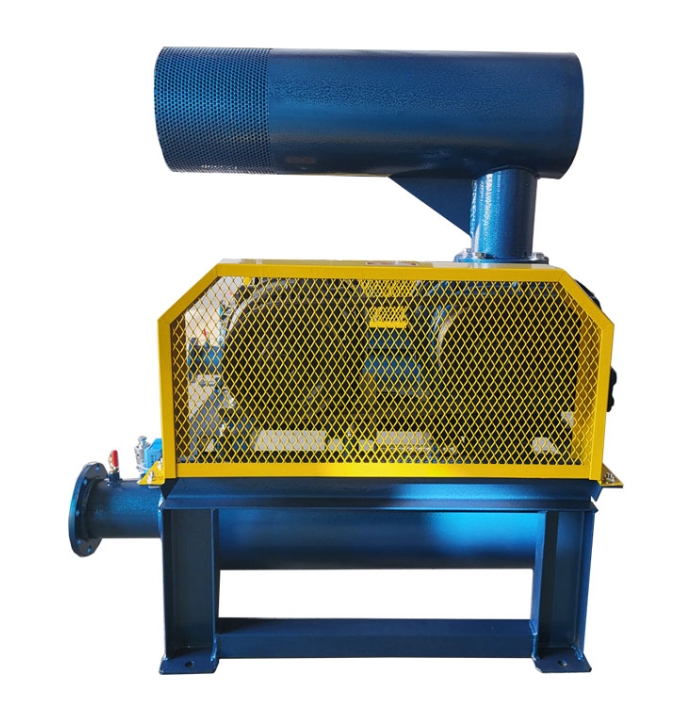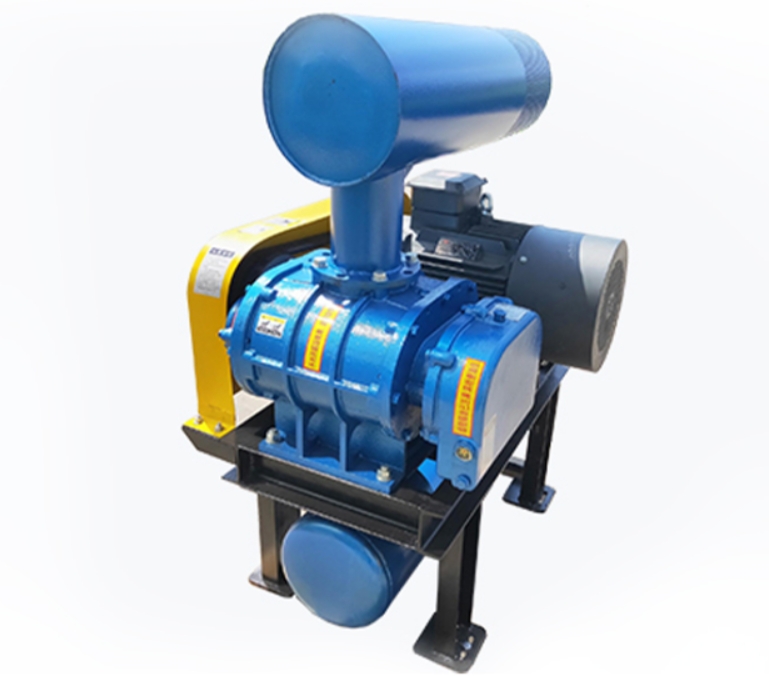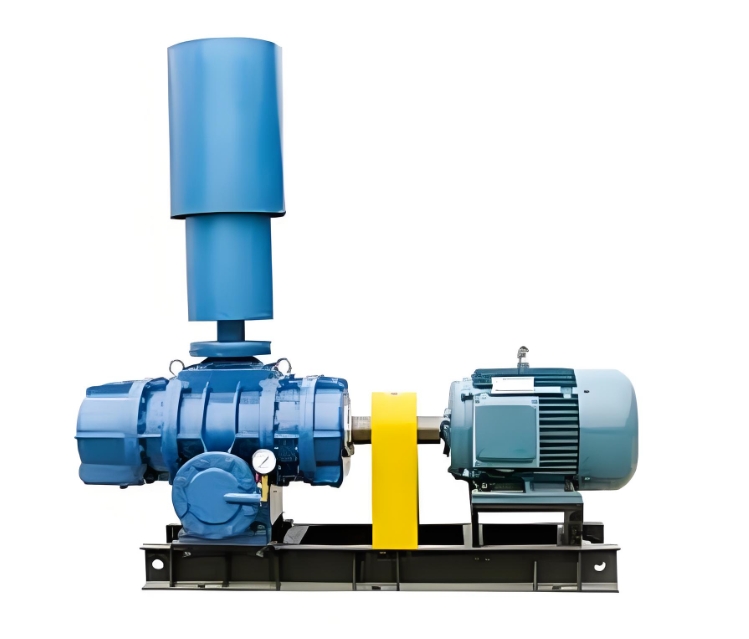Roots blower bearings

Roots blower is a commonly used exhaust equipment, widely used in aquaculture oxygenation, sewage treatment aeration, cement transportation and other fields. It is more suitable for gas transportation and pressurization systems in low-pressure environments, and can also be used as a vacuum pump. As one of its core components, the bearing of Roots blower plays a crucial role in the operation of the blower. The following is a detailed introduction to the bearings of Roots blower:
1、 Functions and types of bearings
1. Function: Bearings are mainly used to support the rotation of rotors and reduce friction and wear. Roots blowers typically use high-quality bearings to ensure they can withstand high-speed rotation and heavy loads.
2. Type: According to different usage environments and work requirements, Roots blower bearings can generally be divided into two types: rolling bearings and sliding bearings. Rolling bearings have the advantages of high load-bearing capacity and long service life, and are suitable for high-speed rotating Roots blowers; Sliding bearings, on the other hand, have the characteristics of low noise and low friction coefficient, making them suitable for some situations with strict requirements.
2、 Selection and maintenance of bearings
1. Selection: The operation and service life of Roots blowers are closely related to the selection of their bearings. The selection of bearings needs to consider performance parameters such as fan speed, pressure, and flow rate, as well as factors such as temperature, humidity, and corrosiveness in the working environment.
2. Maintenance: Regular maintenance is crucial to ensure the normal operation of Roots blower bearings. During use, it is necessary to avoid bearing overheating and overload, clean and replace lubricating oil in a timely manner, regularly check the use status of bearings, and carry out necessary maintenance and replacement.
3、 Steps for replacing bearings
1. Shutdown and power-off: Ensure that the Roots blower has stopped running and cut off the power supply.
2. Prepare tools and materials: Prepare the necessary tools, such as bearing disassembly tools (such as pullers), bearing installation tools, lubricating oil, new bearings, etc.
3. Remove the motor and bearing cover plate: Remove the motor of the Roots blower, remove the bearing cover plate, and expose the bearing.
4. Dismantling old bearings: Based on the fit of the bearings, choose the appropriate dismantling method (such as tapping, pulling, pushing, and hot dismantling) to remove the old bearings.
5. Inspection and cleaning: Inspect the disassembled old bearings and analyze the cause of their damage. Clean the bearing seat and journal with cleaning agent to remove residual oil stains and impurities.
6. Install new bearings: Apply an appropriate amount of lubricating oil to the bearings and bearing seats, and install the new bearings in the correct direction and position on the bearing seats. Align the bearing with the shaft seat using a tool and gently tap to ensure that the bearing is installed in place.
7. Install bearing cover plate and motor: After installing the new bearing, reinstall the bearing cover plate and motor. Ensure that all fasteners are tightened.
8. Inspection and debugging: Start the Roots blower for trial operation and check if the bearing is running normally. If there is any abnormal sound or vibration, the machine should be stopped immediately for inspection and handling.
4、 Sealing technology for bearings
During the use of Roots blowers, premature bearing damage may occur due to impurities or uneven lubrication in the bearings, resulting in paralysis of the Roots blower during operation. Therefore, bearing sealing technology is very important. There are various types of shaft seals for Roots blowers, such as expansion ring, labyrinth, packing, mechanical seal, skeleton rubber shaft seal, etc. Different types of shaft seal devices are suitable for different working media and working environments.
In summary, the quality and performance of Roots blower bearings directly affect the overall performance and lifespan of the fan. Therefore, when selecting, maintaining, and replacing bearings, it is necessary to strictly follow relevant standards and requirements to ensure the normal operation of the fan and extend its service life.





